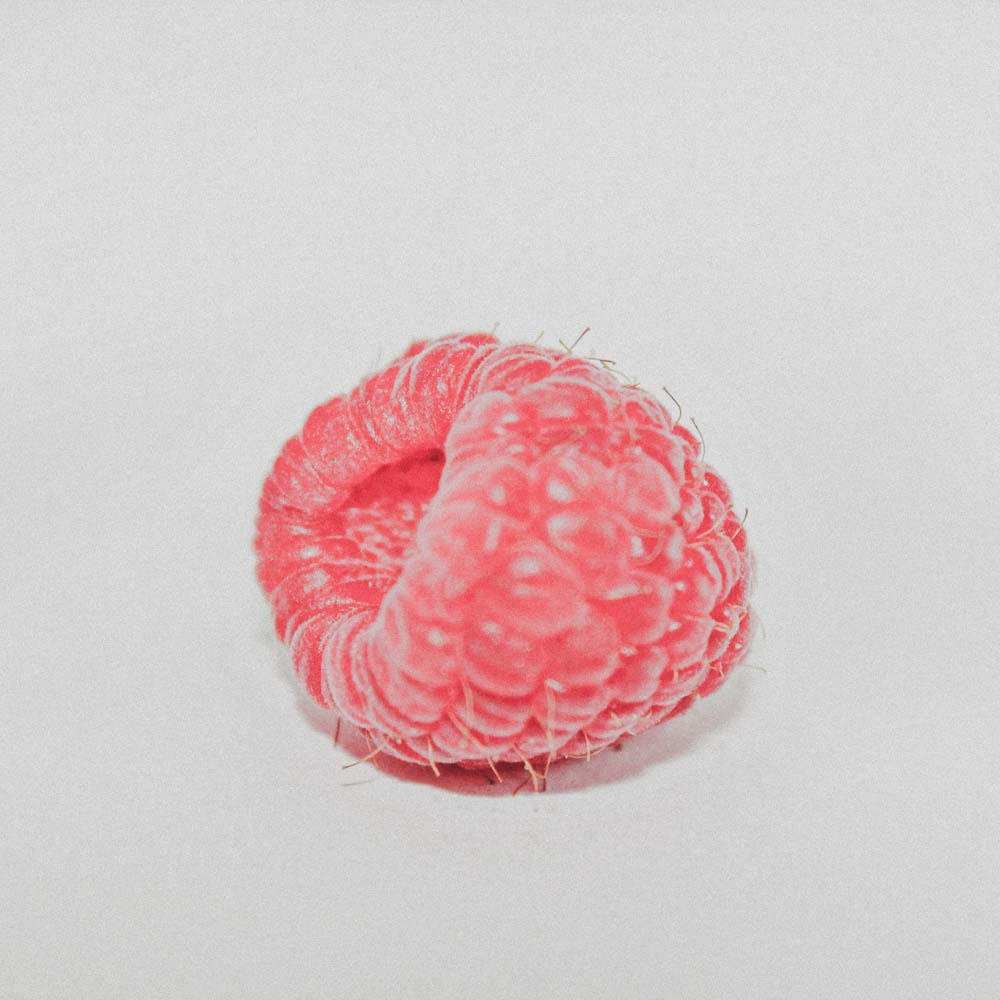Raspberry Seed Oil
INCI: Rubus Idaeus Seed Oil

You're probably always on the lookout for the latest and greatest skincare products and ingredients. One ingredient you may have heard about is raspberry seed oil. If you're curious about what it is and how it can benefit your skin, keep reading!
Scroll down to read
What is Raspberry Seed Oil?
Raspberry seed oil is a cold-pressed oil that is extracted from the seeds of raspberries. It is rich in high value bioactive compounds as fatty acids, tocopherols, tocotrienols, carotenoids, flavonoids, phytosterols, antioxidants, monoterpenes and many other chemical constituents, which make it a popular ingredient in natural and organic skincare products.
Skin Feel of Rasberry Seed Oil
Raspberry seed oil has a light and non-greasy texture, making it a popular choice for use in skincare products. When applied to the skin, it absorbs quickly and leaves a smooth and silky finish, without leaving a heavy or oily feeling. This makes it an excellent ingredient for facial oils, serums, and moisturizers.
Comedogenic Rating of Raspberry Seed Oil
Raspberry seed oil has a comedogenic rating of 0-1, which means it is very unlikely to clog pores and cause breakouts. This makes it a safe and effective ingredient for those with acne-prone or sensitive skin.
How Has Raspberry Seed Oil Been Used in the Past?
Raspberry seed oil has been used in the food industry for its high nutritional value. The oil is rich in essential fatty acids and antioxidants, which make it a popular ingredient in health foods and supplements. The oil can be added to smoothies, salad dressings, and other recipes to provide a boost of nutrients.
In recent years, raspberry seed oil has gained popularity in the skincare industry due to its many benefits for the skin. Its high concentration of essential fatty acids, antioxidants, and anti-inflammatory compounds make it an effective ingredient for improving skin health and appearance. With its long history of use in traditional medicine and its many benefits for the skin, raspberry seed oil is a versatile and valuable ingredient for both internal and external use.
Benefits of Raspberry Seed Oil in Skincare
There are many benefits of using raspberry seed oil in your skincare routine. Here are five of them:
1. Moisturizes the Skin
Raspberry seed oil is a rich source of essential fatty acids, such as linoleic acid and alpha-linolenic acid. These fatty acids help to hydrate and moisturize the skin, making it soft and supple.
2. Protects Against Environmental Damage
Raspberry seed oil is also rich in antioxidants, such as vitamin E and carotenoids. These antioxidants help to protect the skin against damage caused by UV rays and environmental pollutants.
3. Soothes Inflammation
Raspberry seed oil contains anti-inflammatory compounds, such as ellagic acid and phytosterols. These compounds help to calm and soothe inflamed skin, making it ideal for those with sensitive or acne-prone skin.
4. Improves Skin Elasticity
Raspberry seed oil is rich in vitamin A, which is essential for healthy skin. Vitamin A helps to improve skin elasticity, reduce the appearance of fine lines and wrinkles, and promote a more youthful-looking complexion.
5. Brightens the Skin
Raspberry seed oil contains vitamin C, which is a powerful antioxidant that helps to brighten the skin and reduce the appearance of dark spots and hyperpigmentation.
What Nutrients Does Raspberry Seed Oil Contain?
Raspberry seed oil contains a variety of beneficial compounds and nutrients, including:
Essential fatty acids, such as linoleic acid and alpha-linolenic acid.
Raspberry seed oil is a rich source of essential fatty acids, which are important for maintaining healthy skin. Linoleic acid, an omega-6 fatty acid, is a key component of the skin’s natural lipid barrier, which helps to keep moisture in and irritants out. Alpha-linolenic acid, an omega-3 fatty acid, has anti-inflammatory properties that can help to soothe and calm the skin.
Antioxidants, such as vitamin E and carotenoids
In addition to essential fatty acids, raspberry seed oil is also packed with antioxidants, which protect the skin from environmental damage and premature aging. Vitamin E is a powerful antioxidant that helps to neutralize free radicals, while carotenoids, such as beta-carotene and lutein, provide additional protection against UV damage.
Anti-inflammatory compounds, such as ellagic acid and phytosterols
Raspberry seed oil also contains several anti-inflammatory compounds, including ellagic acid and phytosterols. Ellagic acid has been shown to have anti-inflammatory and antioxidant properties, making it an effective ingredient for reducing inflammation and protecting against oxidative stress. Phytosterols are plant-derived compounds that have been shown to reduce inflammation and soothe irritated skin.
Vitamins, such as vitamin A and vitamin C
In terms of vitamins, raspberry seed oil is a good source of both vitamin A and vitamin C. Vitamin A is important for maintaining healthy skin cells and promoting cell turnover, while vitamin C is a potent antioxidant that helps to brighten the skin and protect against environmental damage.
Minerals, such as potassium, magnesium, and calcium
Finally, raspberry seed oil contains a variety of minerals, including potassium, magnesium, and calcium. Potassium helps to regulate the skin’s moisture balance, while magnesium plays a key role in the production of collagen, which helps to keep the skin firm and elastic. Calcium is important for maintaining healthy skin cells and promoting wound healing.
Overall, raspberry seed oil is a nutrient-rich ingredient that provides a wide range of benefits for the skin. Its high content of essential fatty acids, antioxidants, anti-inflammatory compounds, vitamins, and minerals make it an excellent choice for improving skin health and appearance.
Example Use Cases of Raspberry Seed Oil in Skincare
Raspberry seed oil is a versatile ingredient that can be incorporated into a wide range of skincare products. Here are some examples of how it can be used:
Moisturizers
Raspberry seed oil is a great ingredient to look for in moisturizers. Its high concentration of essential fatty acids helps to hydrate and nourish the skin, while its anti-inflammatory properties can soothe and calm irritated skin. Look for moisturizers that contain raspberry seed oil for a hydrating and soothing effect.
Serums
Raspberry seed oil can also be found in serums, which are lightweight formulas designed to penetrate the skin deeply and deliver active ingredients. Serums containing raspberry seed oil can help to brighten the skin, reduce inflammation, and protect against environmental damage.
Facial Oils
Facial oils are a popular addition to many skincare routines, and raspberry seed oil is an excellent choice for those looking to add an oil to their regimen. Its high concentration of essential fatty acids helps to moisturize the skin, while its antioxidant properties protect against environmental damage. Apply a few drops of raspberry seed oil to your face before bed for a nourishing and hydrating effect.
Sunscreen
Raspberry seed oil is a natural sunscreen ingredient that can help to protect the skin against UV damage. Its high concentration of antioxidants and anti-inflammatory compounds makes it an effective ingredient for preventing sun damage and reducing inflammation caused by UV exposure.
Lip Balms
Raspberry seed oil is a popular ingredient in lip balms due to its moisturizing properties. Its high concentration of essential fatty acids helps to hydrate and nourish the delicate skin on the lips, while its anti-inflammatory properties can soothe and calm irritated lips.
Overall, raspberry seed oil can be used in a variety of skincare products to provide a range of benefits for the skin. Its hydrating, soothing, and protective properties make it an excellent ingredient for improving skin health and appearance.
Frequently Asked Questions
Is Raspberry Seed Oil Suitable for All Skin Types?
Yes, raspberry seed oil is suitable for all skin types, including sensitive and acne-prone skin. Its anti-inflammatory properties make it an excellent choice for those with sensitive skin, while its ability to protect against environmental damage and improve skin elasticity makes it ideal for those with mature or aging skin.
Can Raspberry Seed Oil Help with Acne?
Yes, raspberry seed oil can help with acne. Its anti-inflammatory and antioxidant properties can help to reduce inflammation and protect against environmental damage, which can contribute to the development of acne. Additionally, its moisturizing properties can help to balance oil production and prevent excess sebum production, which can clog pores and lead to breakouts.
Is Raspberry Seed Oil Safe to Use during Pregnancy?
While there is no evidence to suggest that raspberry seed oil is harmful during pregnancy, it is always a good idea to consult with your healthcare provider before using any new skincare products or ingredients.
Recap
In summary, raspberry seed oil is a natural and beneficial ingredient for skincare. It moisturizes the skin, protects against environmental damage, soothes inflammation, improves skin elasticity, and brightens the skin. It contains essential fatty acids, antioxidants, anti-inflammatory compounds, vitamins, and minerals. Raspberry seed oil can be used in a variety of skincare products and is suitable for all skin types, including sensitive and acne-prone skin.
Further reading

Blue Tansy
As a skincare enthusiast, you're always on the lookout for new and innovative ingredients to help nourish and protect your skin. That's where blue tansy comes in - this beautiful blue oil has been gaining popularity in the skincare world for its many benefits. In this guide, we'll explore everything you need to know about blue tansy in skincare, from its history to its nutrient content and example use cases.
Continue reading
Raspberry Leaf
Welcome to my comprehensive guide on the use of raspberry leaf in skincare. I know that it can be challenging to navigate the ever-changing world of beauty products. In this article, we will explore the benefits of raspberry leaf, its nutrients, and its potential use cases in skincare. By the end of this guide, you will have a better understanding of why raspberry leaf is a must-have ingredient in your skincare routine.
Continue reading
Blackcurrant leaf
As a skincare enthusiast, it's always exciting to discover new ingredients that work wonders for the skin. In this article, we're going to talk about one such ingredient - blackcurrant leaf. You might be surprised to know that blackcurrant leaves have been used for centuries in traditional medicine, and are now gaining popularity in the skincare industry. So, let's dive in and explore the benefits of blackcurrant leaf in skincare.
Continue reading